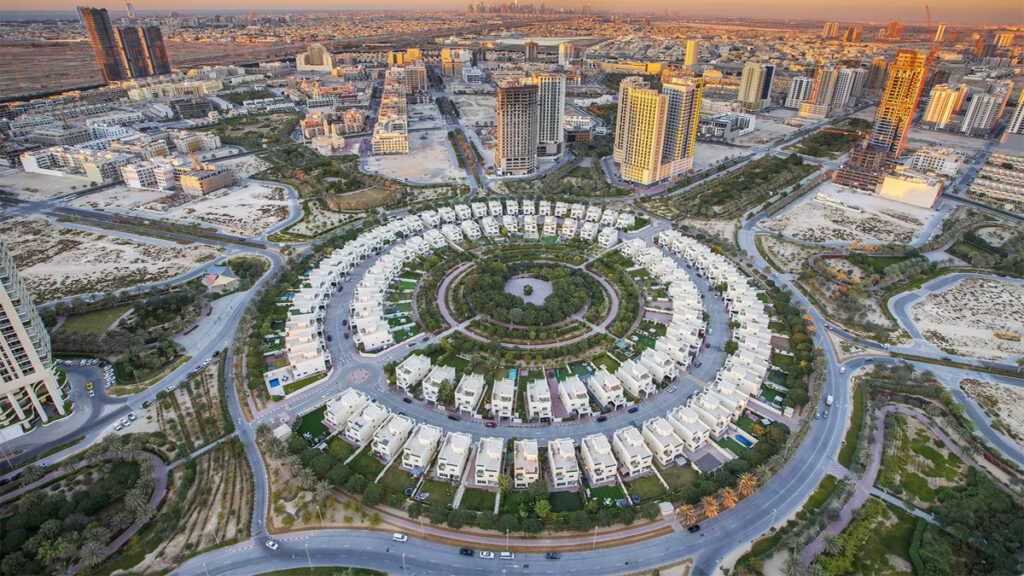Buying a Property in Dubai

Dubai has rapidly become a global hotspot for real estate investment, and for good reason.
- European billionaires now rate living in Dubai higher than in Europe, a sentiment driven by the city’s unmatched lifestyle, safety, and economic prospects.
Over the past three years, Dubai has consistently outperformed global benchmarks.
- In 2023, the capital values of prime residential properties in Dubai surged by 17.4%, significantly outpacing the global average of just 2.2%.
- Additionally, the cost of purchasing, maintaining, and selling property in Dubai is among the lowest worldwide, accounting for less than 10% of the property’s purchase price.
This combination of high returns and low expenses makes Dubai an ideal place for both living and investment.
Source: Is buying property in Dubai a good investment? (2024, June 5). Retrieved August 29, 2024, from DAMAC Properties website: https://www.damacproperties.com/en/blog/buying-property-dubai-good-investment#:~:text=Dubai)
Your Guide to Buying Property in Dubai
Dubai offers a straightforward and accessible property buying process, with no income or inheritance tax on real estate. Residents and foreign investors can acquire property without age restrictions or visa requirements. However, it’s essential to be aware of the additional costs involved. Here’s a step-by-step guide:
1. Setting Your Budget
The process of purchasing property in Dubai begins with defining your needs. Consider if you want an off-plan or ready-to-move-in property, determine the ideal size, and list desired amenities like gardens or parking. Set a realistic budget to guide your search, considering the purchase price and other associated costs such as transfer fees (4% to the Dubai Land Department), agency fees, and mortgage-related expenses.
Engage with a Property Consultant who will guide you through each step of the process, from making an offer and negotiating terms to managing paperwork. Given the importance of this investment, thorough due diligence is essential—ask questions and seek clarity on all aspects.
2. Understanding the Market
Dubai offers diverse properties, including luxurious beachfront towers, serene golf villas, and contemporary townhouses. Your choice will be influenced by your budget and personal preferences. As you explore different areas, consider how each location fits your lifestyle. Evaluate travel times, proximity to work, and overall accessibility. If you’re unsure what best suits your needs, our expert Property Consultants are committed to helping you find a property that not only meets your immediate needs but also aligns with your long-term goals, ensuring that your investment is a true reflection of your vision for the future.
3. Identifying Your Motive to Buy
Before diving into the property search, it’s crucial to identify your primary motive for buying:
- Living in It: If you’re looking for a home, consider properties in established residential areas that offer a high quality of life and easy access to amenities.
- Renting for ROI: For rental income, properties in high-demand areas are ideal, with both long-term and short-term rental options. Long-term rentals typically require Ejari registration, whereas short-term rentals—often furnished with utilities included—cater to tourists and business visitors.
- Long-Term Investment: If you’re after capital appreciation, focus on up-and-coming neighborhoods or off-plan projects where value is expected to rise significantly over time.
- Flipping: For short-term gains, target properties in rapidly developing areas with high turnover potential, aiming to buy, hold for a year or two, and sell at a profit.
Each category suits different property types and locations, making it essential to consult with a property expert who knows the market intricately and can offer options aligned with your investment goals.
4. Viewings
Begin by scheduling viewings for properties that align with your criteria. During these visits, thoroughly inspect the condition, amenities, and surroundings of each property. Engage with the landlord or property manager to clarify key details such as maintenance services, community facilities, and tenancy terms. Ask specific questions about lease duration, included utilities, pet policies, and any additional fees to ensure you have a complete understanding of what each property offers.
5. Making the Right Offer
Once you’ve identified a property that meets your criteria, it’s time to make an offer. Residents and non-residents can acquire property in Dubai without visa requirements or restrictions. For residents of the UAE, the process involves making an offer and following the standard sales procedure. For foreign investors, Dubai’s freehold property market is open, with the option to acquire freehold ownership, off-plan properties, usufruct rights, or leaseholds of up to 99 years.
6. Navigating the Purchase Process
The purchase process in Dubai is relatively straightforward. After agreeing on the price, a sale and purchase agreement (SPA) is drafted. This document outlines the terms of the sale, including payment schedules and transfer deadlines. You must pay a deposit, typically 10% of the property price upon signing. Next, the Dubai Land Department processes the property transfer, requiring a 4% transfer fee. A ‘housing fee,’ amounting to 5% of the property’s annual rental value, is payable monthly.
7. Finalising the Sale
Once all fees are paid and documents are signed, the property is officially transferred to your name. You’ll receive a title deed confirming your ownership. If you plan to rent out the property, consider engaging a property management service to handle tenant relations, maintenance, and other responsibilities.
8. Choosing the Right Property Agent
While buying a property without an agent is possible, a skilled property agent is more than just a facilitator; they are a crucial investment partner. Beyond helping you find the right property, a competent agent assists with reinvesting, liquidating assets, and crafting effective exit strategies. They handle the complex paperwork and legal processes, ensuring everything is in order. Additionally, A full-service agency not only manages your property, oversees maintenance, and coordinates renovations but also guides you through every step of your investment journey, from understanding your investment motives to keeping you informed about future opportunities.




